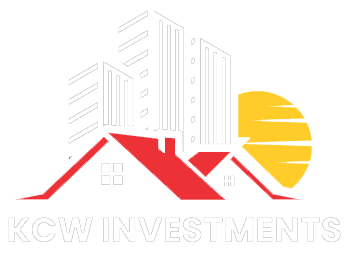Real estate investing can be highly rewarding, but it also comes with its share of risks. To mitigate these risks and make informed decisions, conducting thorough due diligence is essential. This process involves a comprehensive analysis and evaluation of potential investments to ensure they meet your financial goals and risk tolerance. Here’s why due diligence is crucial in real estate investing and the key steps involved.

Why Due Diligence is Crucial
1. Identifying Potential Risks: Due diligence helps identify potential risks associated with a property. These risks could include structural issues, legal problems, financial liabilities, or market conditions that could impact the property’s value and income potential. By uncovering these risks early, investors can make informed decisions and avoid costly mistakes.
2. Accurate Property Valuation: Conducting thorough due diligence ensures that the property’s valuation is accurate. This involves analyzing comparable sales, assessing the property’s condition, and evaluating market trends. Accurate valuation is crucial for negotiating a fair purchase price and securing financing.
3. Ensuring Legal Compliance: Due diligence involves verifying that the property complies with all local, state, and federal regulations. This includes zoning laws, building codes, and environmental regulations. Ensuring legal compliance helps avoid future legal disputes and potential fines.
4. Financial Analysis: A detailed financial analysis during due diligence helps investors understand the property’s income and expenses. This includes reviewing rent rolls, operating statements, and tax records. A thorough financial analysis ensures that the investment aligns with the investor’s financial goals and provides a clear picture of potential returns.
5. Negotiating Power: The information gathered during due diligence provides investors with leverage during negotiations. Identifying issues or discrepancies can lead to price reductions, concessions, or favorable terms that enhance the investment’s profitability.
Key Steps in the Due Diligence Process
1. Property Inspection: Conduct a thorough physical inspection of the property. This includes examining the structure, roof, plumbing, electrical systems, HVAC, and any other critical components. Hiring a professional inspector can help identify potential issues that may not be apparent to the untrained eye.
2. Title Search: A title search ensures that the property’s title is clear of any liens, encumbrances, or legal disputes. This step is crucial for confirming the seller’s ownership and avoiding future legal complications.
3. Market Analysis: Analyze the local real estate market to understand the property’s potential for appreciation and rental income. This includes studying market trends, vacancy rates, rental rates, and economic indicators that could impact the property’s performance.
4. Financial Due Diligence: Review the property’s financial records, including income statements, balance sheets, tax returns, and lease agreements. Verify the accuracy of these documents and assess the property’s current and projected financial performance.
5. Environmental Assessment: Conduct an environmental assessment to identify any potential environmental hazards, such as soil contamination or asbestos. This step is especially important for commercial properties and ensures compliance with environmental regulations.
6. Legal Review: Engage a real estate attorney to review all legal documents related to the property, including the purchase agreement, lease agreements, and any easements or covenants. The attorney can also verify that the property complies with all relevant laws and regulations.
7. Tenant Evaluation: If the property is currently leased, evaluate the existing tenants. Review their lease agreements, payment histories, and any outstanding disputes. Understanding the tenant profile helps assess the property’s income stability and potential for future occupancy.
8. Financing Assessment: Evaluate the financing options available for the property. This includes reviewing loan terms, interest rates, and any contingencies related to the financing. Ensure that the financing aligns with your investment strategy and cash flow projections.
Best Practices for Effective Due Diligence
1. Start Early: Begin the due diligence process as soon as possible after identifying a potential investment. Early start allows ample time to address any issues that arise and make informed decisions.
2. Be Thorough: Conduct a comprehensive analysis of all aspects of the property. Do not overlook any details, as even minor issues can have significant implications for the investment’s success.
3. Engage Professionals: Work with experienced professionals, including real estate agents, attorneys, inspectors, and financial advisors. Their expertise can provide valuable insights and help identify potential risks and opportunities.
4. Document Everything: Keep detailed records of all findings, communications, and documents related to the due diligence process. This documentation can be invaluable for future reference and legal protection.
5. Maintain Objectivity: Remain objective and unbiased throughout the due diligence process. Base your decisions on facts and analysis rather than emotions or assumptions.
Conclusion
Due diligence is a critical component of successful real estate investing. By conducting thorough evaluations and analysis, investors can identify potential risks, ensure accurate property valuation, and make informed decisions that align with their financial goals. Implementing effective due diligence practices helps mitigate risks, enhance profitability, and ultimately achieve long-term investment success.



